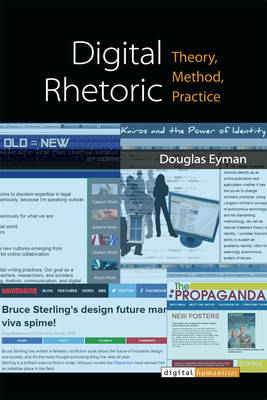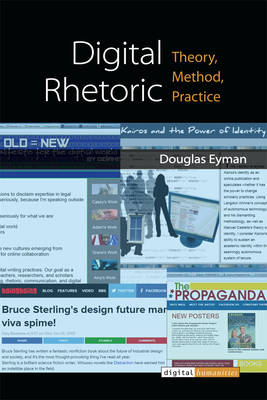
- Afhalen na 1 uur in een winkel met voorraad
- Gratis thuislevering in België vanaf € 30
- Ruim aanbod met 7 miljoen producten
- Afhalen na 1 uur in een winkel met voorraad
- Gratis thuislevering in België vanaf € 30
- Ruim aanbod met 7 miljoen producten
Zoeken
€ 88,95
+ 177 punten
Omschrijving
What is "digital rhetoric"? This book aims to answer that question by looking at a number of interrelated histories, as well as evaluating a wide range of methods and practices from fields in the humanities, social sciences, and information sciences to determine what might constitute the work and the world of digital rhetoric. The advent of digital and networked communication technologies prompts renewed interest in basic questions such as What counts as a text? and Can traditional rhetoric operate in digital spheres or will it need to be revised? Or will we need to invent new rhetorical practices altogether?
Through examples and consideration of digital rhetoric theories, methods for both researching and making in digital rhetoric fields, and examples of digital rhetoric pedagogy, scholarship, and public performance, this book delivers a broad overview of digital rhetoric. In addition, Douglas Eyman provides historical context by investigating the histories and boundaries that arise from mapping this emerging field and by focusing on the theories that have been taken up and revised by digital rhetoric scholars and practitioners. Both traditional and new methods are examined for the tools they provide that can be used to both study digital rhetoric and to potentially make new forms that draw on digital rhetoric for their persuasive power.
Through examples and consideration of digital rhetoric theories, methods for both researching and making in digital rhetoric fields, and examples of digital rhetoric pedagogy, scholarship, and public performance, this book delivers a broad overview of digital rhetoric. In addition, Douglas Eyman provides historical context by investigating the histories and boundaries that arise from mapping this emerging field and by focusing on the theories that have been taken up and revised by digital rhetoric scholars and practitioners. Both traditional and new methods are examined for the tools they provide that can be used to both study digital rhetoric and to potentially make new forms that draw on digital rhetoric for their persuasive power.
Specificaties
Betrokkenen
- Auteur(s):
- Uitgeverij:
Inhoud
- Aantal bladzijden:
- 176
- Taal:
- Engels
- Reeks:
Eigenschappen
- Productcode (EAN):
- 9780472072682
- Verschijningsdatum:
- 1/06/2015
- Uitvoering:
- Hardcover
- Formaat:
- Genaaid
- Afmetingen:
- 152 mm x 231 mm
- Gewicht:
- 385 g

Alleen bij Standaard Boekhandel
+ 177 punten op je klantenkaart van Standaard Boekhandel
Beoordelingen
We publiceren alleen reviews die voldoen aan de voorwaarden voor reviews. Bekijk onze voorwaarden voor reviews.











